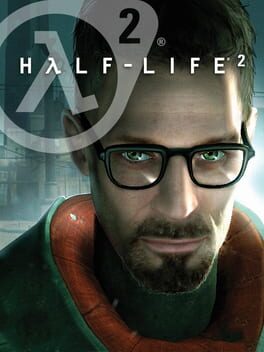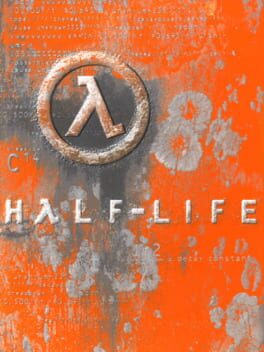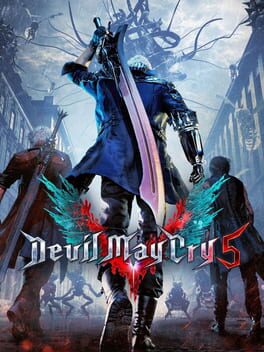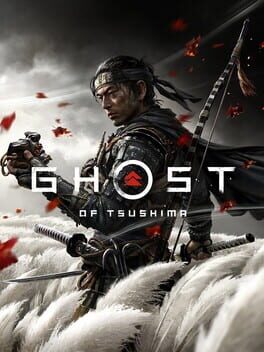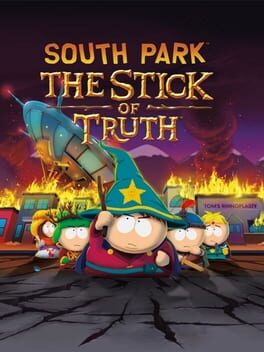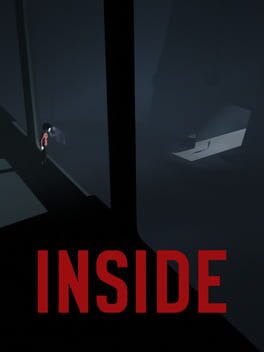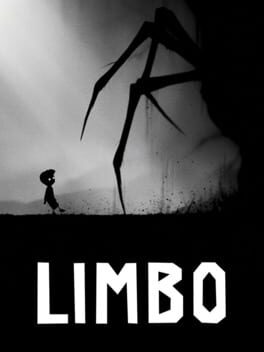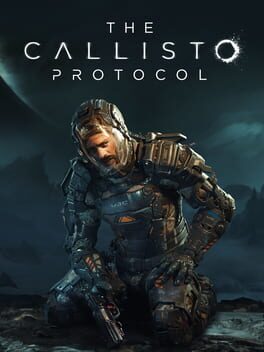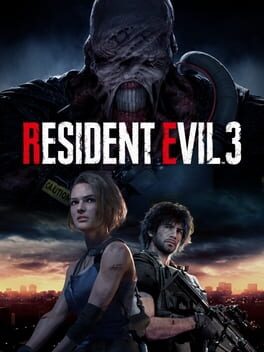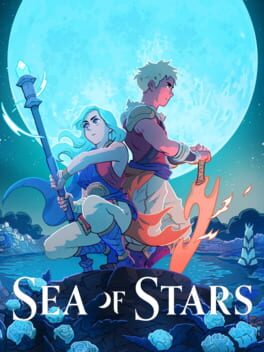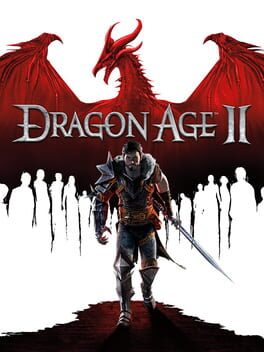OneCrackImpact
2004
1998
I wish I'd enjoyed this more. It goes without saying that playing a 25 year old game isn't exactly going to yield the same experience as a more modern one, and the games of the 90s in particular haven't aged all that well across the board in comparison to say, the mid 2000s, but I was hoping that Half-Life would somehow be an exception.
And it's not like it entirely wasn't. There is still plenty about this thing to enjoy, there's just also a lot of utter dogshit in here as well. It feels mildly sacrilegious to say that about one of the most influential and near-universally beloved games ever made, but I personally don't really subscribe to the notion that old games should be given all that much slack when it comes to critique simply on the basis that their issues didn't seem like issues at the time of their release.
Still, on the topic of that influence, it's definitely what appealed to me most about Half-Life. I've wanted to go back and see the root of the DNA of many games I've loved over the years for a good while now, and it was apparent right from the beginning just how many games of all genres, especially but not limited to shooters, have borrowed from the ground rules that Valve set a quarter of a century ago. Everything from Bioshock to Call of Duty has Half-Life to thank for revolutionizing the medium and paving the way toward greener pastures.
But again, that doesn't necessarily mean it's still good. Movement feels pretty awful, combat feels limp, puzzles are obtuse and uninteresting to solve, I even found the oft-praised narrative to be mostly uninteresting. I don't want to go on for too long about everything that I'd consider less than stellar about Half-Life, as pretty much all its drawbacks can be attributed to its aforementioned age, but I just find it a tad unbelievable how many people look back at this thing through rose-coloured glasses and completely ignore all the aspects that make it a consistently frustrating and annoying game to play through in modern times.
I'm sure it was insane in 1998 to play an FPS where enemies did anything other than just blindly bumrush you, or where you had the freedom to violently murder any random scientist or security guard you come across, etc. And I have to give the game its flowers for opening people's eyes to the possibilities of video games in a way that had never been done prior. But in the year of our lord 2023, it's just not that novel or fun anymore.
And it's not like it entirely wasn't. There is still plenty about this thing to enjoy, there's just also a lot of utter dogshit in here as well. It feels mildly sacrilegious to say that about one of the most influential and near-universally beloved games ever made, but I personally don't really subscribe to the notion that old games should be given all that much slack when it comes to critique simply on the basis that their issues didn't seem like issues at the time of their release.
Still, on the topic of that influence, it's definitely what appealed to me most about Half-Life. I've wanted to go back and see the root of the DNA of many games I've loved over the years for a good while now, and it was apparent right from the beginning just how many games of all genres, especially but not limited to shooters, have borrowed from the ground rules that Valve set a quarter of a century ago. Everything from Bioshock to Call of Duty has Half-Life to thank for revolutionizing the medium and paving the way toward greener pastures.
But again, that doesn't necessarily mean it's still good. Movement feels pretty awful, combat feels limp, puzzles are obtuse and uninteresting to solve, I even found the oft-praised narrative to be mostly uninteresting. I don't want to go on for too long about everything that I'd consider less than stellar about Half-Life, as pretty much all its drawbacks can be attributed to its aforementioned age, but I just find it a tad unbelievable how many people look back at this thing through rose-coloured glasses and completely ignore all the aspects that make it a consistently frustrating and annoying game to play through in modern times.
I'm sure it was insane in 1998 to play an FPS where enemies did anything other than just blindly bumrush you, or where you had the freedom to violently murder any random scientist or security guard you come across, etc. And I have to give the game its flowers for opening people's eyes to the possibilities of video games in a way that had never been done prior. But in the year of our lord 2023, it's just not that novel or fun anymore.
2019
That Doom 2016 game design be hitting different here.
The only reasons I could think of not to call this thing a masterpiece are: 1) how little investment I initially had into the story and 2) evil/emo Timothée Chalamet's moveset being oodles less fun than either Nero's or especially Dante's (my king). The former isn't really the game's fault at all since this was my first foray into the DmC games, and honestly by the end I was pretty invested into this story in particular. In all its over the top gooberiness and tongue in cheek wisecrackery, there is a certain heart here that you just don't find all that often. And the latter is honestly just an afterthought that I got over very quickly, made even more moot by the fact that the developers were clearly aware of V's inferiority in the fun department and kept his sections to a minimum.
So yeah, fuck it. It's a masterpiece. This is some of the most fun I've had playing video games in a long, long time.
The only reasons I could think of not to call this thing a masterpiece are: 1) how little investment I initially had into the story and 2) evil/emo Timothée Chalamet's moveset being oodles less fun than either Nero's or especially Dante's (my king). The former isn't really the game's fault at all since this was my first foray into the DmC games, and honestly by the end I was pretty invested into this story in particular. In all its over the top gooberiness and tongue in cheek wisecrackery, there is a certain heart here that you just don't find all that often. And the latter is honestly just an afterthought that I got over very quickly, made even more moot by the fact that the developers were clearly aware of V's inferiority in the fun department and kept his sections to a minimum.
So yeah, fuck it. It's a masterpiece. This is some of the most fun I've had playing video games in a long, long time.
2023
What the fuck?/What a fucking game/Holy fuck
Addendum a day later:
While not a perfect game, Alan Wake 2 is without a doubt one of the most interesting pieces of media of any kind in recent years. Once again, Sam Lake's Twin Peaks influence is on full display here, with all the vague, obscure and oftentimes convoluted intertwining plot threads, mystical alternate reality imagery, and of course, lovably offbeat humour all over this thing.
Do I wish the combat had a bit more variety and challenge? Yes, definitely. I played on the hardest difficulty and only died 4-5 times throughout my 25ish hours. Do I wish Saga's voice actor could keep a consistent accent instead of sometimes letting the British soak through and distractingly ignoring the letter R? Yeah, probably. But the fact that I'm grasping at a straw like that so early when thinking about AW2's flaws is pretty telling isn't it? The fact is, this is an incredibly inventive, terrifically gorgeous looking (other than those wonky mirrors) and just flat out ridiculously compelling video game. Not to mention that fucking sound design, I mean god damn this might actually be the best sounding game I've ever played in my life.
It's more than a game though, really. Much like the original's notorious final line; "it's not a lake, it's an ocean", there's much more to this thing than just what you see on the surface. It's all walks of art come together to create something truly special, perhaps the foremost example of what a multimedia experience can and should be. Gameplay. Music. Film. Literature. Photography. joined together in a chorus of beauty and intrigue unlike anything else.
WE SING.
Addendum a day later:
While not a perfect game, Alan Wake 2 is without a doubt one of the most interesting pieces of media of any kind in recent years. Once again, Sam Lake's Twin Peaks influence is on full display here, with all the vague, obscure and oftentimes convoluted intertwining plot threads, mystical alternate reality imagery, and of course, lovably offbeat humour all over this thing.
Do I wish the combat had a bit more variety and challenge? Yes, definitely. I played on the hardest difficulty and only died 4-5 times throughout my 25ish hours. Do I wish Saga's voice actor could keep a consistent accent instead of sometimes letting the British soak through and distractingly ignoring the letter R? Yeah, probably. But the fact that I'm grasping at a straw like that so early when thinking about AW2's flaws is pretty telling isn't it? The fact is, this is an incredibly inventive, terrifically gorgeous looking (other than those wonky mirrors) and just flat out ridiculously compelling video game. Not to mention that fucking sound design, I mean god damn this might actually be the best sounding game I've ever played in my life.
It's more than a game though, really. Much like the original's notorious final line; "it's not a lake, it's an ocean", there's much more to this thing than just what you see on the surface. It's all walks of art come together to create something truly special, perhaps the foremost example of what a multimedia experience can and should be. Gameplay. Music. Film. Literature. Photography. joined together in a chorus of beauty and intrigue unlike anything else.
WE SING.
2019
Still so, so fascinating. I'm almost always a sucker for the surreal and cerebral, and the more twinpeaksian the better as far as I'm concerned. Now tack on top of that some wonderfully kinetic, action packed and pretty creative, if eventually becoming slightly repetitive gameplay, and you've easily secured a spot in my personal canon.
I will say that it's a little bit disappointing how the main plot thread is genuinely the least interesting thing about Control though. It's far more intriguing just soaking in knowledge of the bureau's past and present than it is engaging with Jesse's manic pixie nightmare brother or her schizophrenia Fibonacci. And since in my first playthrough I'd already damn near 100%'d the game and read/watched every collectible I found, this replay where I focused more on mainlining it was definitely noticeably less enjoyable, revealing some more drawbacks than had previously resided within my recollection of the game. Very much worth anyone's time though regardless, especially considering how cheap it's often available for these days.
I will say that it's a little bit disappointing how the main plot thread is genuinely the least interesting thing about Control though. It's far more intriguing just soaking in knowledge of the bureau's past and present than it is engaging with Jesse's manic pixie nightmare brother or her schizophrenia Fibonacci. And since in my first playthrough I'd already damn near 100%'d the game and read/watched every collectible I found, this replay where I focused more on mainlining it was definitely noticeably less enjoyable, revealing some more drawbacks than had previously resided within my recollection of the game. Very much worth anyone's time though regardless, especially considering how cheap it's often available for these days.
2020
After around 40 hours and a platinum, I'm still a bit conflicted on how to feel about this one. There's a lot here that I really, really like and a lot that I really don't.
It's easy to point at all the utterly trite open world fluff when talking about the worst aspects of Ghost of Tsushima and yes, in true post Far Cry 3 fashion, most of that stuff is very tedious and not all that interesting to do after the first couple times you do it. But what I found actually dampened my enjoyment the most was just how stifling the movement system is. Somehow Sucker Punch made the Uncharted/Horizon climbing system even more barebones and uninteresting. Plus, I found that annoyingly often Jin would stick to surfaces like glue, refusing to jump on or off smoothly, in addition to the plethora of annoying invisible walls around rocks and the like that if removed would make the world and combat that much more enjoyable to move through.
There's other negatives too, but I don't want to harp on this game too too much, because at the end of the day I did actually enjoy my time with it a good bit. I think once I internalized and accepted that this thing wasn't gonna be an original experience in almost any way, but rather a refinement of what much of the industry had built up again and again throughout the 2010s, it became pretty easy for me to enjoy Ghost for what it is.
Pacing is often the weakest point of modern open world games, as it's pretty difficult to properly space out mechanics and narrative moments in games where freedom is the primary philosophy, but I think Ghost has some of the strongest the genre's ever seen, at least beyond its biggest titans. It's not a difficult game by any means, and it doesn't need to be, but the way encounters gradually escalate in both enemy number and strength as you progress North in the map and forward in the story is very well done, to the point where I'm not even sure I really noticed until returning to the South and remarking on just how piss easy the enemies down there were.
Speaking of the combat, it could maybe use a little bit more variety or improved technical elegance and it's far from the best ever seen in a modern action game, but it does have just enough depth to keep from ever feeling overly simple or truly getting boring. Duels did feel extremely samey after a while, as almost all of the "bosses" have essentially the same moveset, and they're not exactly much of a challenge increase outside of just having more health than your average opponent, but they don't really overuse them and they can make for some nice cinematic moments so it's not too blatant of an issue.
The moment that really solidified that my feelings towards GoT were more positive than negative was most certainly that god damn ending. That final mission is just so inexplicably good for almost no reason. The rest of the story has its high points and its low ones, but the way this thing ends is prototypical samurai story mastery.
There's many ways the eventual sequel could improve, perhaps a little less reliance on formulaic and repetitive objectives and activities being chief amongst them, but for a first shot at an IP, I think Ghost of Tsushima is pretty impressive. Even if I spent a good chunk of my time with it thinking how much better it could potentially be.
It's easy to point at all the utterly trite open world fluff when talking about the worst aspects of Ghost of Tsushima and yes, in true post Far Cry 3 fashion, most of that stuff is very tedious and not all that interesting to do after the first couple times you do it. But what I found actually dampened my enjoyment the most was just how stifling the movement system is. Somehow Sucker Punch made the Uncharted/Horizon climbing system even more barebones and uninteresting. Plus, I found that annoyingly often Jin would stick to surfaces like glue, refusing to jump on or off smoothly, in addition to the plethora of annoying invisible walls around rocks and the like that if removed would make the world and combat that much more enjoyable to move through.
There's other negatives too, but I don't want to harp on this game too too much, because at the end of the day I did actually enjoy my time with it a good bit. I think once I internalized and accepted that this thing wasn't gonna be an original experience in almost any way, but rather a refinement of what much of the industry had built up again and again throughout the 2010s, it became pretty easy for me to enjoy Ghost for what it is.
Pacing is often the weakest point of modern open world games, as it's pretty difficult to properly space out mechanics and narrative moments in games where freedom is the primary philosophy, but I think Ghost has some of the strongest the genre's ever seen, at least beyond its biggest titans. It's not a difficult game by any means, and it doesn't need to be, but the way encounters gradually escalate in both enemy number and strength as you progress North in the map and forward in the story is very well done, to the point where I'm not even sure I really noticed until returning to the South and remarking on just how piss easy the enemies down there were.
Speaking of the combat, it could maybe use a little bit more variety or improved technical elegance and it's far from the best ever seen in a modern action game, but it does have just enough depth to keep from ever feeling overly simple or truly getting boring. Duels did feel extremely samey after a while, as almost all of the "bosses" have essentially the same moveset, and they're not exactly much of a challenge increase outside of just having more health than your average opponent, but they don't really overuse them and they can make for some nice cinematic moments so it's not too blatant of an issue.
The moment that really solidified that my feelings towards GoT were more positive than negative was most certainly that god damn ending. That final mission is just so inexplicably good for almost no reason. The rest of the story has its high points and its low ones, but the way this thing ends is prototypical samurai story mastery.
There's many ways the eventual sequel could improve, perhaps a little less reliance on formulaic and repetitive objectives and activities being chief amongst them, but for a first shot at an IP, I think Ghost of Tsushima is pretty impressive. Even if I spent a good chunk of my time with it thinking how much better it could potentially be.
2016
Man, this thing really does put Limbo to shame doesn't it? In the 6 years between Inside and its spiritual predecessor, Playdead learned how to take everything that worked about their breakout hit (aesthetic, ambience, ambiguity) and kick it up a notch, while simultaneously kicking everything that didn't work to the curb, coming out the other end with what may just be the crown jewel of the arthouse indie genre.
While it's incredibly impressive how poignant the allegorical nature of Inside is, and how whether you look at it as a symbolic work representing the plight of somebody with cancer or some other deadly disease, if you walk away from it considering the greyer areas of bureaucracy and economy, or if you simply take it as a more straightforward narrative of a kid infiltrating an oppressive society/company in order to gain his own freedom and/or power, you're not wrong. I find it maybe even more impressive just how well the experience flows from beginning to end.
There's still a little bit of that trial and error reliant puzzlework, but it just seems so finely tuned this time around. You're never stuck anywhere for too too long, and the pace is kept moving along briskly enough to avoid tedium, yet still satisfyingly enough to avoid any sense of boredom of ease. I can't think of another small, artsy platformer that even comes close to accomplishing this sort of thing nearly this well.
I'm really glad I enjoyed Inside just as much, if not more this time through as I did my first time some years ago. It's wild to think it's been even longer now since Inside dropped than it was between then and when Limbo released. But, Playdead's become one of those companies that I have no quandary with taking as much time as they need to if it means their next game will be just as tight, polished and stem to stern well designed as this one was.
While it's incredibly impressive how poignant the allegorical nature of Inside is, and how whether you look at it as a symbolic work representing the plight of somebody with cancer or some other deadly disease, if you walk away from it considering the greyer areas of bureaucracy and economy, or if you simply take it as a more straightforward narrative of a kid infiltrating an oppressive society/company in order to gain his own freedom and/or power, you're not wrong. I find it maybe even more impressive just how well the experience flows from beginning to end.
There's still a little bit of that trial and error reliant puzzlework, but it just seems so finely tuned this time around. You're never stuck anywhere for too too long, and the pace is kept moving along briskly enough to avoid tedium, yet still satisfyingly enough to avoid any sense of boredom of ease. I can't think of another small, artsy platformer that even comes close to accomplishing this sort of thing nearly this well.
I'm really glad I enjoyed Inside just as much, if not more this time through as I did my first time some years ago. It's wild to think it's been even longer now since Inside dropped than it was between then and when Limbo released. But, Playdead's become one of those companies that I have no quandary with taking as much time as they need to if it means their next game will be just as tight, polished and stem to stern well designed as this one was.
2010
Limbo's assuredly a classic of the early indie boom era and the nostalgia I felt upon seeing that god damn spider's legs first unfurl this time around was certainly palpable. But after so many years since that original experience with this thing, and so many small, artsy indie games of a similar ilk that have quite simply done it far better, it's tough to really say it still contains that same magic it once did.
This time through Limbo, many of the more frustrating and annoying aspects of the game's mechanics and design stuck out far more egregiously to me than they ever did back when I was younger. Now, I still wouldn't say that the majority of the game is designed poorly, but that latter 20-25% is really a massive fucking slog of puzzles that the movement ability provided to the player does not accommodate well in the slightest.
As much as the aesthetic and atmosphere here does most of the heavy lifting, and was indeed a large reason why this thing grew to popularity in the first place, I really don't think it services the gameplay at all. The most prominent feeling this playthrough left me with was the desire to go back to Inside soon, where Playdead thankfully managed to iron out essentially all, if not literally all of the stupid kinks that hold this game back from reaching anything past the higher end of the mediocrity spectrum.
This time through Limbo, many of the more frustrating and annoying aspects of the game's mechanics and design stuck out far more egregiously to me than they ever did back when I was younger. Now, I still wouldn't say that the majority of the game is designed poorly, but that latter 20-25% is really a massive fucking slog of puzzles that the movement ability provided to the player does not accommodate well in the slightest.
As much as the aesthetic and atmosphere here does most of the heavy lifting, and was indeed a large reason why this thing grew to popularity in the first place, I really don't think it services the gameplay at all. The most prominent feeling this playthrough left me with was the desire to go back to Inside soon, where Playdead thankfully managed to iron out essentially all, if not literally all of the stupid kinks that hold this game back from reaching anything past the higher end of the mediocrity spectrum.
2019
This was such a weird & wonderful game. So glad I finally got around to it. Props to Kojima & co. for pulling something this strange & unique off. No shade to any of the other auteurs out there but I doubt anyone else in the industry could've made all these oddball ideas mesh together nearly as well.
Where in the fuck did this $150 million go? To pretty lighting? To mid actors giving mid performances? It's actually baffling that this hunk of shit was given a premiere AAA budget and THIS is the product that came out on the other side.
You know, for the first hour or so I didn't even think The Callisto Protocol was all that bad. Mid as hell, sure, but it might not be so bad once more mechanics are introduced and the level design opens up.
Ha... haha...
What followed was 6 more hours of the same shit. Over and over and over and over again. Crawl through a tunnel or a vent, enter a room, attempt to do a thing, generic protagonist says "god damn it needs a code", walk around for a few minutes, find a few enemies, do the same boring dodge, dodge, melee, shoot combo repetitively, find a dead body, recover code, go back and enter code, enter next room, find a switch that needs a fuse, repeat process but with a new fuse instead of a code and repeat again.
It's really just one of the most lazily designed slogfests I've played through in a long time. Front to back rehashed ideas that had been executed much better well over a decade before. To even call Callisto a shittier version of Dead Space 2 feels like an affront to Dead Space 2, but it's pretty much unavoidable. There's a falling section here that plays out pretty much exactly like the jetpack section of that game, except, you know, there you had fucking JETPACK BOOTS and here Jacob apparently just has total control of gravity. I mean, the big bad is even a bald, black guy who sacrifices the populous of the moon-based station he's the head of in the name of the progression of humanity as a member of a strange, (assumingly) religious cult.
I could go on, but it's not even worth it. All I can say is that to all of you who paid real money for this game, I'd recommend organizing a class-action lawsuit.
You know, for the first hour or so I didn't even think The Callisto Protocol was all that bad. Mid as hell, sure, but it might not be so bad once more mechanics are introduced and the level design opens up.
Ha... haha...
What followed was 6 more hours of the same shit. Over and over and over and over again. Crawl through a tunnel or a vent, enter a room, attempt to do a thing, generic protagonist says "god damn it needs a code", walk around for a few minutes, find a few enemies, do the same boring dodge, dodge, melee, shoot combo repetitively, find a dead body, recover code, go back and enter code, enter next room, find a switch that needs a fuse, repeat process but with a new fuse instead of a code and repeat again.
It's really just one of the most lazily designed slogfests I've played through in a long time. Front to back rehashed ideas that had been executed much better well over a decade before. To even call Callisto a shittier version of Dead Space 2 feels like an affront to Dead Space 2, but it's pretty much unavoidable. There's a falling section here that plays out pretty much exactly like the jetpack section of that game, except, you know, there you had fucking JETPACK BOOTS and here Jacob apparently just has total control of gravity. I mean, the big bad is even a bald, black guy who sacrifices the populous of the moon-based station he's the head of in the name of the progression of humanity as a member of a strange, (assumingly) religious cult.
I could go on, but it's not even worth it. All I can say is that to all of you who paid real money for this game, I'd recommend organizing a class-action lawsuit.
2015
I feel like I should've played this back when it came out. Not that I don't appreciate it at all as an adult, and I doubt that even back then I would've found myself completely enamoured with it in the same way as its most fervent members of the fanbase are, but I just feel like it passed me by in some way.
Undertale's best aspects are still very much attractive to me. Just the way it plays with the conventions of video games as a whole is nothing short of brilliant. So, even if I don't personally love everything it's doing, I can see why this thing has received so much unending praise for years.
Undertale's best aspects are still very much attractive to me. Just the way it plays with the conventions of video games as a whole is nothing short of brilliant. So, even if I don't personally love everything it's doing, I can see why this thing has received so much unending praise for years.
2020
Obviously far and away the weakest of the REmakes to this point, but overall I do think it's still a damn fine game. Most of the issues here lie with very specific questionable design choices and annoying or just plain unfun moments. Looking at you 2nd, 3rd and 4th Nemmy fights, and oh how could I forget about you buttfuck awful hospital siege.
But then there's the rest of the game which is, generally speaking, more than competent despite also falling very much short of the (impossibly high, mind you) level and encounter design standards set by Capcom's modern output.
Again though, it's still a real fun time if you look past its flaws and appreciate the lovably schlocky narrative and still airtight mechanics. Which admittedly could prove more difficult for some others than it was for me, given how those flaws often glare at you with direct eye contact from every which angle imaginable akin to the Mona Lisa.
But then there's the rest of the game which is, generally speaking, more than competent despite also falling very much short of the (impossibly high, mind you) level and encounter design standards set by Capcom's modern output.
Again though, it's still a real fun time if you look past its flaws and appreciate the lovably schlocky narrative and still airtight mechanics. Which admittedly could prove more difficult for some others than it was for me, given how those flaws often glare at you with direct eye contact from every which angle imaginable akin to the Mona Lisa.
2023
Fucking wonderful game, unfortunately held back a little bit by a somewhat underwhelming ending and a 'true' ending that, in my opinion, demands too much of a timesink into busywork on the part of the player.
Also, definitely a step down in writing when it comes to creativity and cleverness in comparison to The Messenger, but I think at least some of that can be attributed to the team's clear passion towards paying homage to classic RPGs of this ilk.
Also, definitely a step down in writing when it comes to creativity and cleverness in comparison to The Messenger, but I think at least some of that can be attributed to the team's clear passion towards paying homage to classic RPGs of this ilk.
2011
You can definitely draw a lot of parallels between the evolutions of the Mass Effect series from 1 to 2 and the Dragon Age series from Origins to 2. Both sequels significantly toned down the RPG aspects of their respective series' introductory entries and turn focus onto a much more heavily action oriented experience. Both sequels shift gears from a large scale conquest to a more personal journey. Both sequels introduce a new cast of characters while paying homage to their precursor's prominent personalities (though admittedly, there's a rather large dichotomy between the two in terms of returning faces).
The biggest difference is that it's obvious that Mass Effect 2 was just handled by a much more talented team within BioWare. Dragon Age 2 isn't bad though, and in some ways I think it's bit more fun than its predecessor. The faster paced combat, for one, is appreciated in my eyes at least, though just as sloggy at points. But a lot of this just feels rushed, cobbled together in order to meet a deadline and in turn sacrificing pretty much all the nuance of Origins. Still quite enjoyable and I'd easily recommend it to any fantasy nut, but unavoidably a deeply flawed game.
The biggest difference is that it's obvious that Mass Effect 2 was just handled by a much more talented team within BioWare. Dragon Age 2 isn't bad though, and in some ways I think it's bit more fun than its predecessor. The faster paced combat, for one, is appreciated in my eyes at least, though just as sloggy at points. But a lot of this just feels rushed, cobbled together in order to meet a deadline and in turn sacrificing pretty much all the nuance of Origins. Still quite enjoyable and I'd easily recommend it to any fantasy nut, but unavoidably a deeply flawed game.
